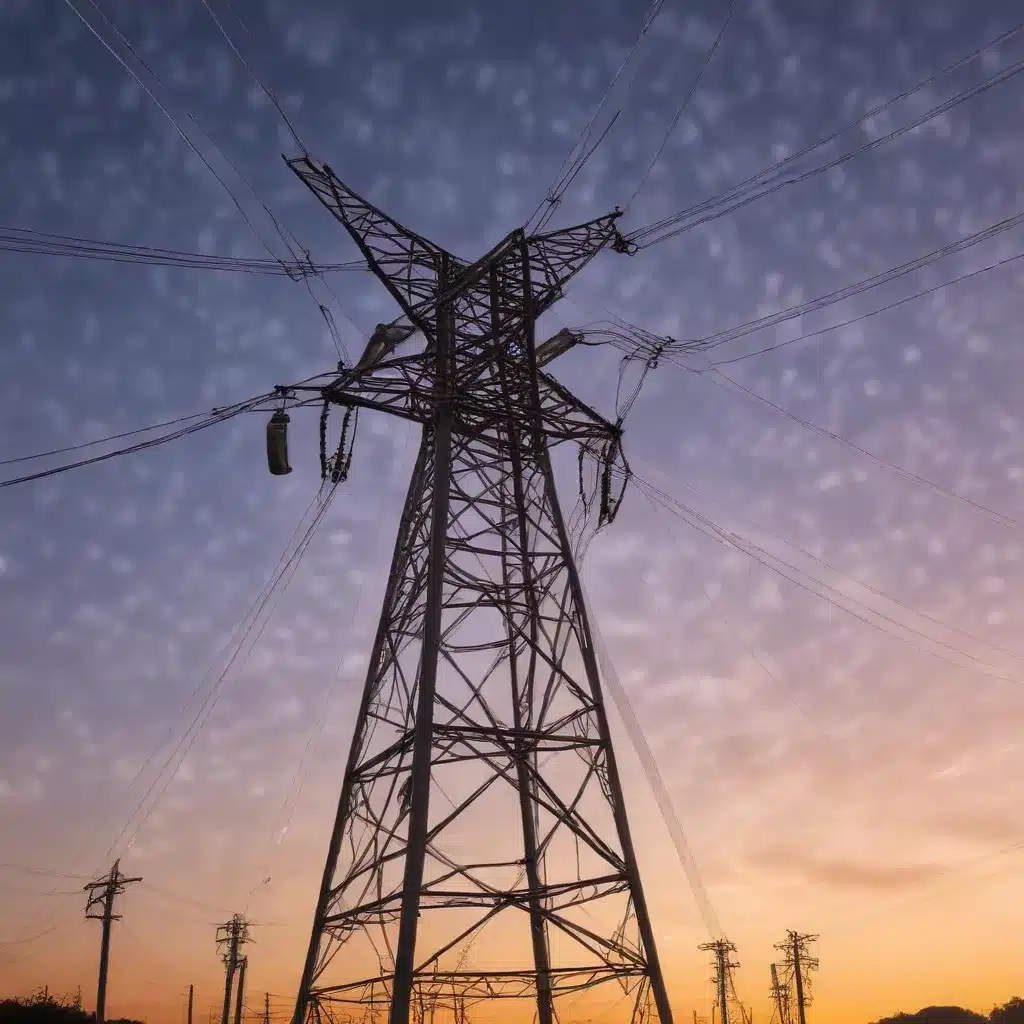
The energy landscape in Europe is undergoing a profound transformation as the continent accelerates its shift towards a sustainable, low-carbon future. At the heart of this transition lies the decentralized energy system—a paradigm shift that is upending traditional centralized power generation and distribution models. These decentralized approaches, which harness the potential of renewable energy sources, energy storage, and smart grid technologies, are poised to play a pivotal role in achieving Europe’s ambitious climate goals.
Defining Decentralized Energy Systems
Decentralized energy systems refer to a model where energy generation, storage, and distribution are dispersed across multiple, smaller-scale, and often renewable-based, facilities rather than relying on large, centralized power plants. This distributed approach enables greater flexibility, resilience, and local control over energy production and consumption.
Benefits of Decentralized Energy Approaches
The advantages of decentralized energy systems are manifold. They facilitate the integration of renewable energy sources, such as solar, wind, and hydrogen, into the grid, reducing reliance on fossil fuels and driving down greenhouse gas emissions. Moreover, these systems can enhance grid stability and reliability by reducing transmission losses and empowering local communities to manage their own energy needs.
Technological Advancements in Decentralized Systems
Technological breakthroughs have been instrumental in the rise of decentralized energy systems. The rapid developments in solar photovoltaic (PV) panels, wind turbines, and energy storage solutions, such as lithium-ion batteries and hydrogen fuel cells, have made renewable energy generation and storage more accessible and cost-effective. Additionally, the emergence of smart grid technologies, microgrids, and distributed energy management systems have enabled the seamless integration and optimization of these decentralized energy resources.
Technical Challenges in Decentralized Energy Systems
Despite the numerous benefits of decentralized energy systems, there are still several technical challenges that must be overcome to fully realize their potential.
Grid Integration and Intermittency
One of the primary challenges is the integration of intermittent renewable energy sources, such as solar and wind, into the existing grid infrastructure. The variable and unpredictable nature of these resources can create stability and reliability issues, requiring innovative solutions to ensure a balanced and resilient power supply.
Energy Storage Solutions
Effective energy storage is crucial for addressing the intermittency challenge. Advancements in battery technologies, hydrogen storage, and other storage solutions are necessary to provide the necessary flexibility and backup power to support the integration of renewable energy into the grid.
Scalability and Efficiency
As decentralized energy systems become more widespread, ensuring their scalability and efficiency becomes a critical concern. Factors such as power electronics, grid synchronization, and system optimization must be addressed to enable the seamless expansion of these distributed energy networks while maintaining high levels of performance and cost-effectiveness.
Innovations Driving Decentralized Energy Transformation
To overcome these technical challenges, the European energy sector is harnessing the power of innovation, leveraging advancements in renewable energy, smart grid technologies, and distributed energy management strategies.
Renewable Energy Technologies
The continued improvements in solar PV, wind turbines, and hydrogen production through electrolysis have been instrumental in enhancing the viability and widespread adoption of decentralized energy systems. These technologies are becoming increasingly efficient, cost-effective, and scalable, making them attractive options for both large-scale and smaller, community-based energy projects.
Smart Grid and Microgrid Architectures
The evolution of smart grid and microgrid technologies has been a game-changer for decentralized energy systems. These advanced grid architectures, equipped with digital sensors, communication networks, and intelligent control systems, enable the seamless integration and optimization of distributed energy resources, ensuring grid stability and resilience.
Distributed Energy Management Strategies
Complementing the technological advancements, innovative distributed energy management strategies are emerging as critical enablers of decentralized energy systems. These approaches leverage artificial intelligence, blockchain, and advanced analytics to facilitate real-time energy monitoring, peer-to-peer energy trading, and dynamic load balancing, empowering consumers and communities to actively participate in the energy transition.
Overcoming Regulatory and Policy Barriers
While the technical challenges are being addressed through innovation, the successful deployment of decentralized energy systems also requires navigating complex regulatory and policy landscapes.
Regulatory Frameworks for Decentralized Systems
Policymakers across Europe are working to establish regulatory frameworks that foster the growth of decentralized energy systems. This includes the development of interconnection standards, net metering policies, and energy market designs that enable the seamless integration of distributed energy resources into the grid.
Incentives and Policies to Promote Adoption
Governments and public-private partnerships are implementing a range of incentives and policies to encourage the widespread adoption of decentralized energy solutions. These include feed-in tariffs, tax credits, investment grants, and carbon pricing mechanisms that make renewable energy and energy efficiency technologies more attractive to businesses and consumers.
Stakeholder Collaboration and Engagement
Successful deployment of decentralized energy systems requires close collaboration among a diverse set of stakeholders, including utilities, technology providers, policymakers, regulators, and local communities. Fostering open dialogues, sharing best practices, and aligning on common goals are crucial for overcoming regulatory barriers and ensuring a smooth energy transition.
As Europe continues its journey towards a sustainable energy future, the transformation to decentralized energy systems is gaining momentum. By harnessing the power of technological innovation, coupled with supportive regulatory frameworks and collaborative efforts, the continent is well-positioned to overcome the technical challenges and unlock the full potential of this decentralized energy revolution. The European Future Energy Forum will continue to be at the forefront of this transformation, providing a platform for industry leaders, policymakers, and innovators to shape the energy landscape of tomorrow.







